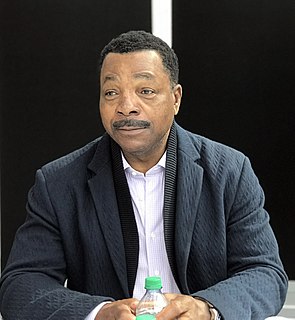A Quote by Bradford Winters
Leaders are made through discipline, training, experience, failure, and the desire to continually improve.
Quote Topics
Related Quotes
The thing to keep in mind is that the answer to the question I often get - Are leaders born or made? - is an emphatic yes! All leaders are born, and all are made, through devoted practice of reflecting on experience to learn what's worked and what hasn't, good coaching and accountability pressure to grow, good luck, and, of course, some talent.
There are many objects of desire, and therefore many desires. Some are born with us, hunger, yearning, and pride of place, and some are of the foolishness of the world, such as the desire to eat off silver plates. Desire is a wild horse to be tamed. Virtue is habit long continued. The taming of desire is like the training of an athlete. Discipline is not the restraint but the use of energy.
Discipline is the bridge between thought and accomplishment. Discipline comes to those with the awareness that for a kite to fly it must rise against the wind; that all good things are achieved by those who are willing to swim upstream; that drifting aimlessly through life only leads to bitterness and disappointment." And then he added: "Discipline is the foundation on which all success is built. Lack of discipline inevitably leads to failure.
Cult leaders are often self-styled prophets who have not studied with great teachers or undergone lengthy training or discipline themselves. . . Many of the most dangerous cultic figures of our times have no such stabilizing context of tradition, lineage or transmission, but are self-proclaimed gurus who sway their followers through their charismatic talents. . . .
Sadly, too many corporate leaders still believe that the way to boost productivity and profits is to continually reduce salaries, benefits, and training expenditures, a strategy that can be taken only so far. At a certain point in a developed society, salaries and benefits can't be slashed further and, in the long term, comparative economic advantage then must be realized through the effective mobilization of an educated, engaged, and loyal workforce.
The religious training inspired in me a desire for learning. In fact, I am immensely grateful for my Catholic education for instilling in me a desire for learning. However, the Catholic training also gave me a desire for questioning. The desire to question led me eventually to distance myself from the Catholic institution and its dogma.
































